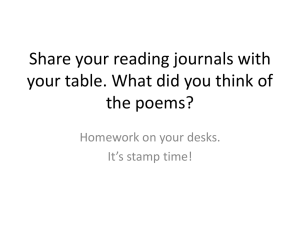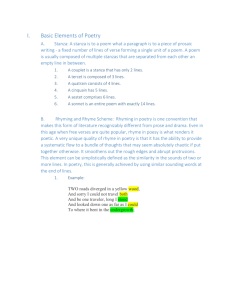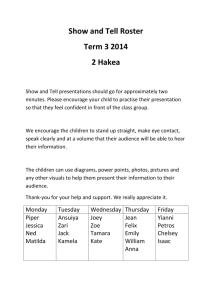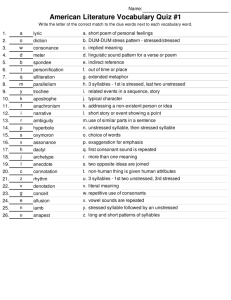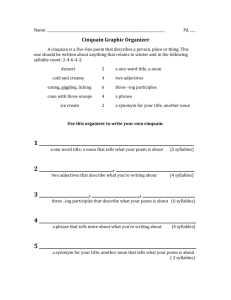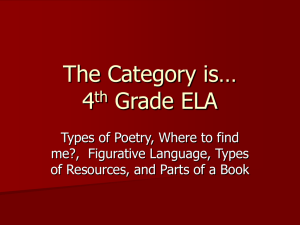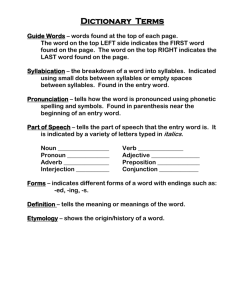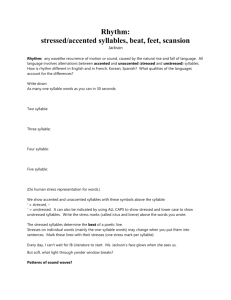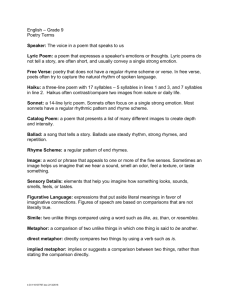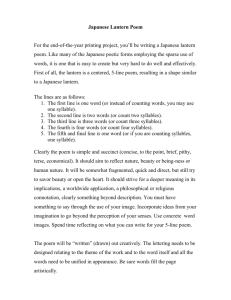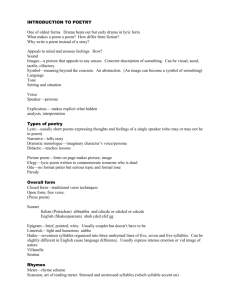literal language – uses words in their ordinary senses
advertisement
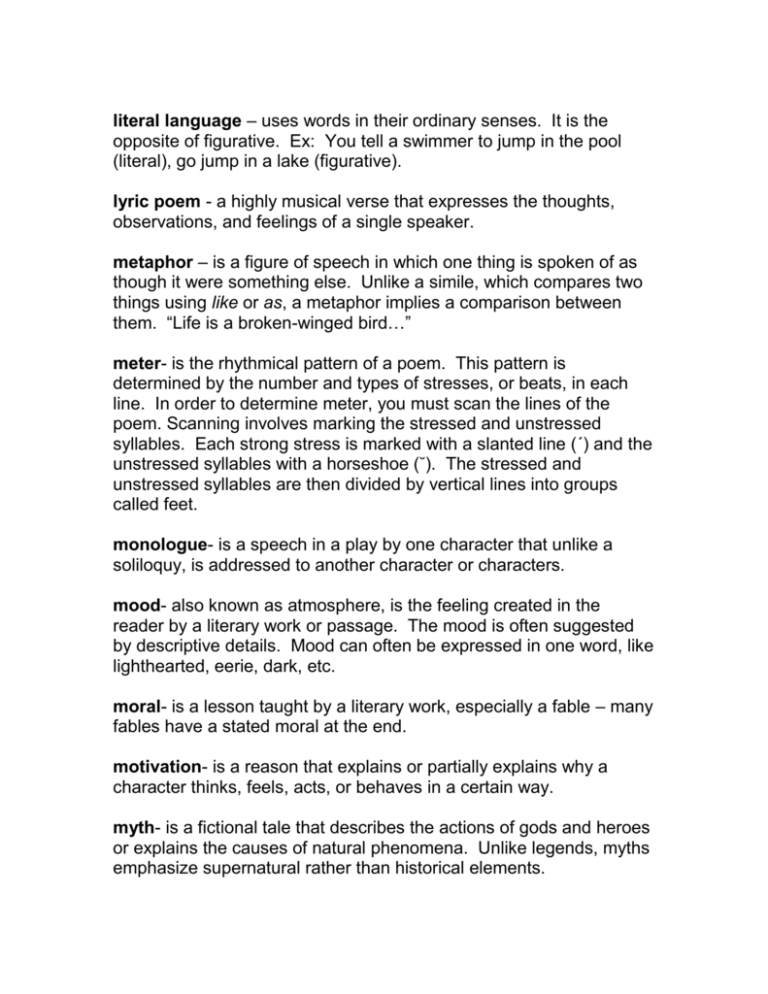
literal language – uses words in their ordinary senses. It is the opposite of figurative. Ex: You tell a swimmer to jump in the pool (literal), go jump in a lake (figurative). lyric poem - a highly musical verse that expresses the thoughts, observations, and feelings of a single speaker. metaphor – is a figure of speech in which one thing is spoken of as though it were something else. Unlike a simile, which compares two things using like or as, a metaphor implies a comparison between them. “Life is a broken-winged bird…” meter- is the rhythmical pattern of a poem. This pattern is determined by the number and types of stresses, or beats, in each line. In order to determine meter, you must scan the lines of the poem. Scanning involves marking the stressed and unstressed syllables. Each strong stress is marked with a slanted line (΄) and the unstressed syllables with a horseshoe (˘). The stressed and unstressed syllables are then divided by vertical lines into groups called feet. monologue- is a speech in a play by one character that unlike a soliloquy, is addressed to another character or characters. mood- also known as atmosphere, is the feeling created in the reader by a literary work or passage. The mood is often suggested by descriptive details. Mood can often be expressed in one word, like lighthearted, eerie, dark, etc. moral- is a lesson taught by a literary work, especially a fable – many fables have a stated moral at the end. motivation- is a reason that explains or partially explains why a character thinks, feels, acts, or behaves in a certain way. myth- is a fictional tale that describes the actions of gods and heroes or explains the causes of natural phenomena. Unlike legends, myths emphasize supernatural rather than historical elements. narration- is writing that tells a story. The act of telling a story in speech is also called narration. Novels and short stories are fictional narratives. News stories, biographies, and autobiographies are nonfiction narratives.
